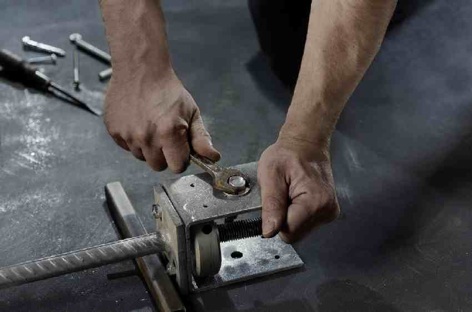In June, I joined NGOs and politicians from around the world at Rio+20, the United Nations Conference on Sustainable Development. In their bid to agree measures that will reduce poverty and promote clean energy and the fair use of resources, global leaders agreed upon the role of technology and innovation as critical underpinning factors for change.
The right technologies to make development sustainable are already available today – the challenge is deploying them in the right way. In this context the key challenge is to create links between the people with the ideas, those working on the ground with the local knowledge of how it might work and the financers to back them.
As managing director of the Siemens Stiftung – the charitable foundation of the Siemens AG — I have launched a global initiative that will provide the platform for inventors developing low-cost engineering solutions to get their idea out to the people who stand to benefit most.
What do we mean when we talk about sustainable technology for development?
Twenty years after Trevor Baylis submitted his first patent application for a wind-up radio, the ‘empowering people award’is searching for the next generation of affordable technologies that can help some of the world’s most vulnerable people build a better life for themselves. Designed for people without electricity and too poor to buy batteries, Baylis saw his radio as an affordable way to disseminate health education in areas of Africa devastated by AIDS. It worked, and later models would be used by hundreds of thousands of households across the continent.
So today, two decades after Baylis’ patent, what do we mean when we talk about sustainable technology for development?

A diverse range of technologies are already playing a significant role in promoting social, environmental and economic developments across the globe. In Kenya, communities in remote areas of the country suffer from limited access to energy and clean drinking water. The Water Energy Hub (WE-Hub) is an initiative designed to utilize solar technology in order to provide electricity and water for local people. The projects are conducted in cooperation with local partners and communities and are socially and financially self-sustainable.
In South America, an organisation named EHAS (Enlace Hispano Americano de Salud – The Latin American Health Clinic) is rolling out basic internet connectivity for health professionals in remote rural villages. Doctors can now talk to leading medical professionals who can help with patient diagnosis and treatment. They can even navigate and guide clinical scans over the internet in real time to help identify the cause of problems.
In an increasingly globalised world, the success of these technologies in their local communities suggests an opportunity for wider roll out to solve similar issues around the world; however it’s not that simple. Two common barriers faced by those developing sustainable technologies include the network of contacts necessary to bring a design to market and the ability to scale up solutions to make them sustainable for the long-term and accessible more widely.
To address these issues, once we have identified promising technologies through the award we will pool them in a catalogue aimed at financial backers and organisations working on the ground. This also allows developing communities to choose technologies that meet their needs rather than simply being offered ones devised by well meaning first world institutions. Sustainable development is not about imposing engineering solutions on a community but providing a framework so that communities can empower themselves, in a way that best suits their own environment and individual needs.
Our partnerships with multinational NGOs and grassroots agencies will help to get innovative technologies out to those people who need them. We are also focused on working with governments as these are the ones that have the real power to scale up solutions nationwide. By developing initiatives which prove to achieve a sustainable impact and improve quality of life, we hope that eventually these technological solutions can be included within government frameworks and be adopted into public policy.
It is important that we now move this rhetoric into action and begin to distribute the simple technologies that will improve lives around the world
The close of Rio+20 saw global leaders commit to using technology and innovation to drive practical solutions in sustainable development as part of the Rio Declaration “The Future We Want”. It is important that we now move this rhetoric into action and begin to distribute the simple technologies that will improve lives around the world. Innovators with the ideas are out there, the money to fund them is available and there are local people ready and able to help. Our aim is to get them round a table and turn Rio’s calls to action into working technologies.
Ulrike Wahl is Managing Director of the Siemens Stiftung based in Munich. The “empowering people award“ is open to inventors until 31 December 2012. See www.empowering-people-award.org










BEAS funding available to help businesses cut energy costs
And not a moment too soon, if the following exchange broadcast last Friday 13th June, on the Radio 4 ´Rare Earth´ program (link below, ~ 17 minutes...